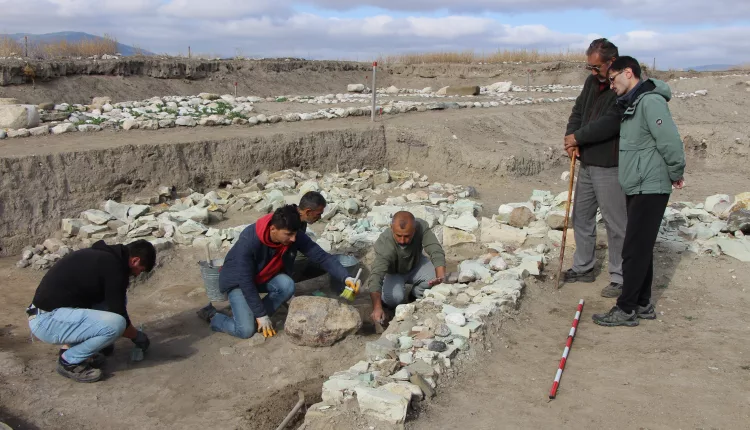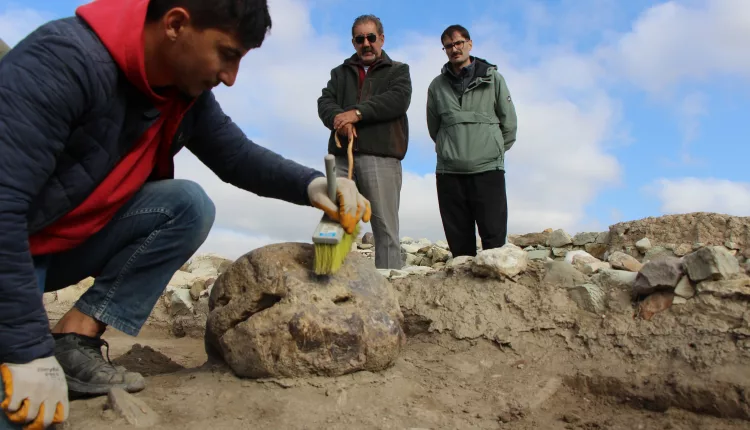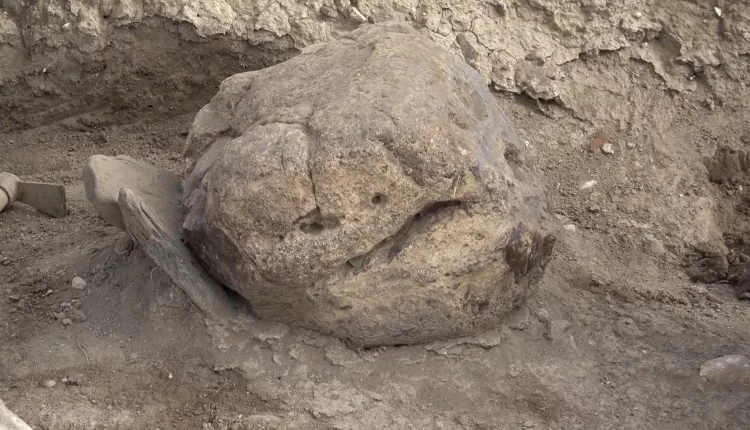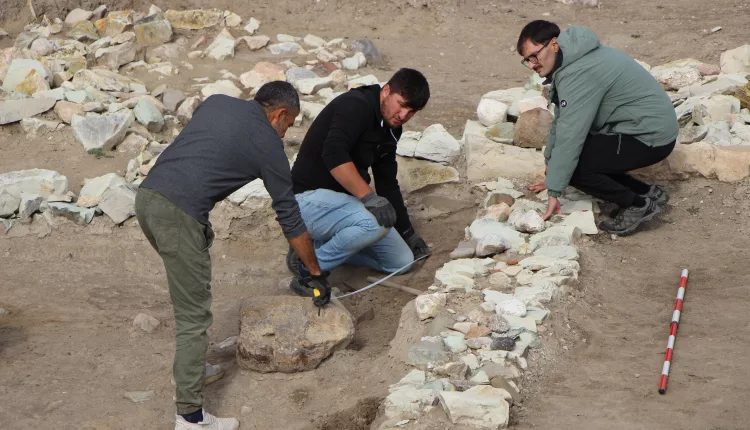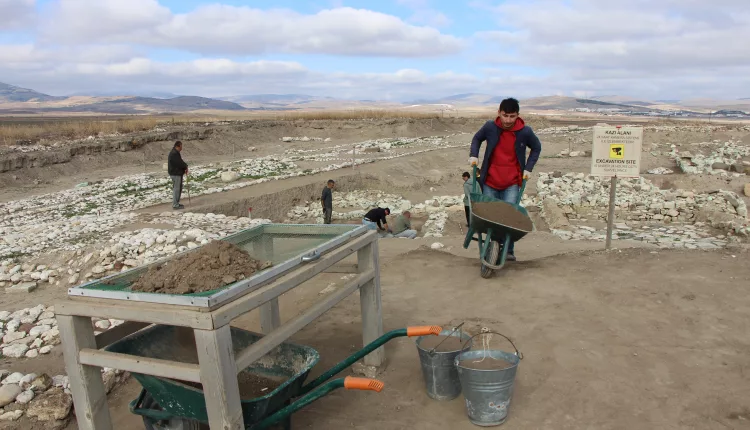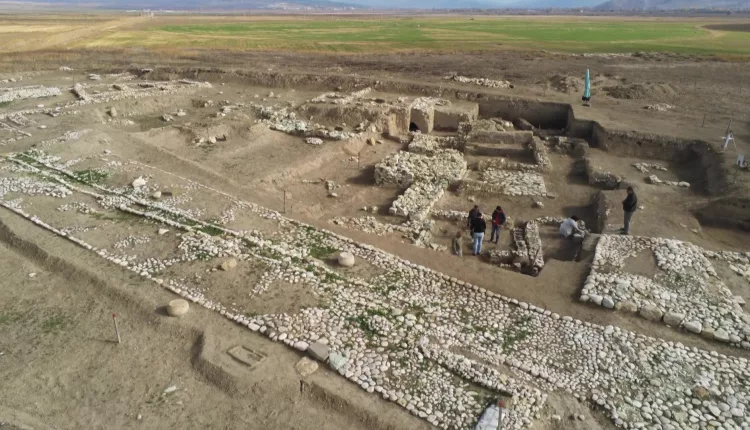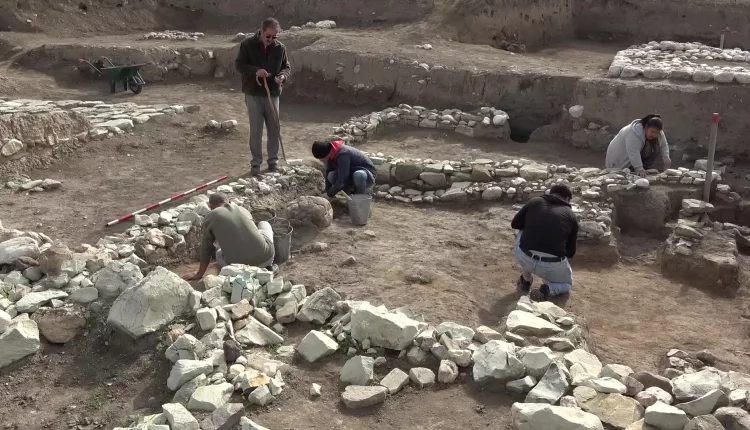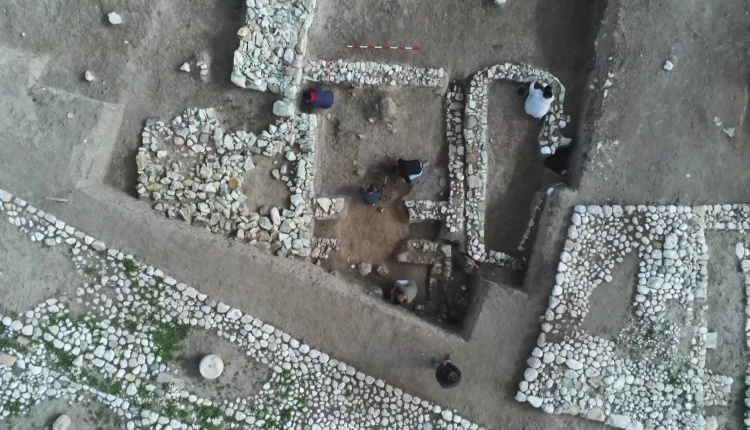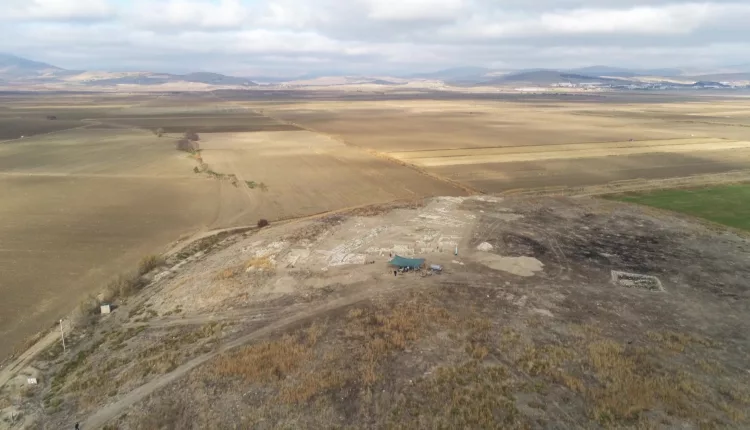A sacred room and stone from the Phrygian period, dating back 2,600 years, have been discovered at the Oluz Mound in Amasya, Türkiye. Excavation director Prof. Dr. Şevket Dönmez described the find as a first in Anatolian archaeology, highlighting the significance of uncovering a sacred stone linked to the goddess Kubaba.
The discovery, including a 20-square-meter structure and altars dedicated to Kubaba, aligns with historical accounts of a black stone representing the goddess. Prof. Dr. Dönmez noted, “This finding substantiates the connection between sacred stones and the mother goddess in ancient Anatolia.”
The project, supported by Türkiye’s Ministry of Culture and Tourism and local institutions, aims to restore the site and open it to tourism, potentially uncovering more elements of this sacred complex.
Murat Çelik

